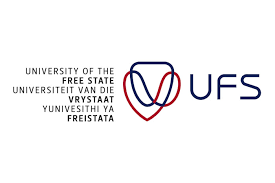University of the Free State Inaugurates Groundbreaking South Africa-Sweden Student Platform
The University of the Free State (UFS) Office for International Affairs recently launched its first-ever UFS South Africa Sweden University Forum (SASUF) student structure during a hybrid event on the Bloemfontein Campus.
As one of the 40 SASUF collaborating universities, the UFS has been encouraged to establish internal student structures that advocate for students’ involvement and participation in activities promoting the enhancement of the Strategic Development Goals (SDGs), specifically quality education. Simba Matema, Assistant Researcher in the Office for International Affairs, was elected as the network’s representative for the UFS as well as the National SASUF coordinator.
Established in 2018, SASUF aims to strengthen ties between Sweden and South Africa in research, education, and innovation.
Hearing student voices
Chevon Slambee, responsible for Virtual Engagement and select strategic projects in the Office for International Affairs, believes that this established student network provides an opportunity for students to make their voices heard and to impact policy imperatives related to the student community.
“This intervention gives students a chance to engage on important matters that affect them in the student community. The student perspective is important and can contribute to positive change at the university,” she stated.
One of the first initiatives of the UFS SASUF student structure was the launch of the ‘Hot Topic’ debate series.
The inaugural debate focused on the question: ‘Does our UFS culture allow for the preservation of indigenous knowledge?’ and permitted students to express their perspectives on this matter. It aimed to explore the extent to which the current institutional culture, along with Vision 130, either allows or inhibits the preservation and integration of African indigenous knowledge.
Each debating team consisted of one student, one staff member, and one member from the UFS Debate Society. They deliberated on the following questions: ‘In a research-led institution, is there room for indigenous knowledge integration and preservation in an evolutional institutional climate?’ and ‘Does the current UFS institutional culture allow for the preservation of indigenous African knowledge?’
Slambee commented: “The debate provided students with a chance to not only encourage critical thinking on this topic, but also to think more strategically, enhancing articulation around this matter without taking things personally when someone disagrees. We aim to not stir up controversy, but to foster meaningful discussion and thoughtful involvement. We want the debate space to be a space where diverse views are respected and appreciated.”
Vision 130 promotes the notion of epidemic diversity. “Through the ‘Hot Topic’ debate series, we want to create a culture of care, as well as a vibrant space for and acceptance of constructive and critical engagement,” she added.
“I was proud of the students; hearing their thoughts and contributions about the preservation of indigenous knowledge was pleasantly surprising,” said Slambee.
“This is not a stand-alone event of the Office for International Affairs, but a collaboration with faculties and students,” said Slambee, who – with the next topic – would like to include other faculties besides the Faculty of Law in the process.
Topics students can look forward to include discussions on the lack of funding opportunities for students in South Africa, and the importance of building sustainable relationships with surrounding communities. According to Slambee, the next debate will be hosted in the first semester of 2024.
Students’ involvement in important processes
“Besides being a great success, this event also illustrated the importance of harnessing the student voice in processes such as policy implementation and strategic decision-making – functions that essentially impact their academic and social lives,” said Matema.
With research as one of its focuses, SASUF would also like to feature research contributions from students. Slambee remarked, “I’m excited to see some of the student thoughts and perspectives that could inform new research and contribute to the overall quality of education and the student experience at universities.

